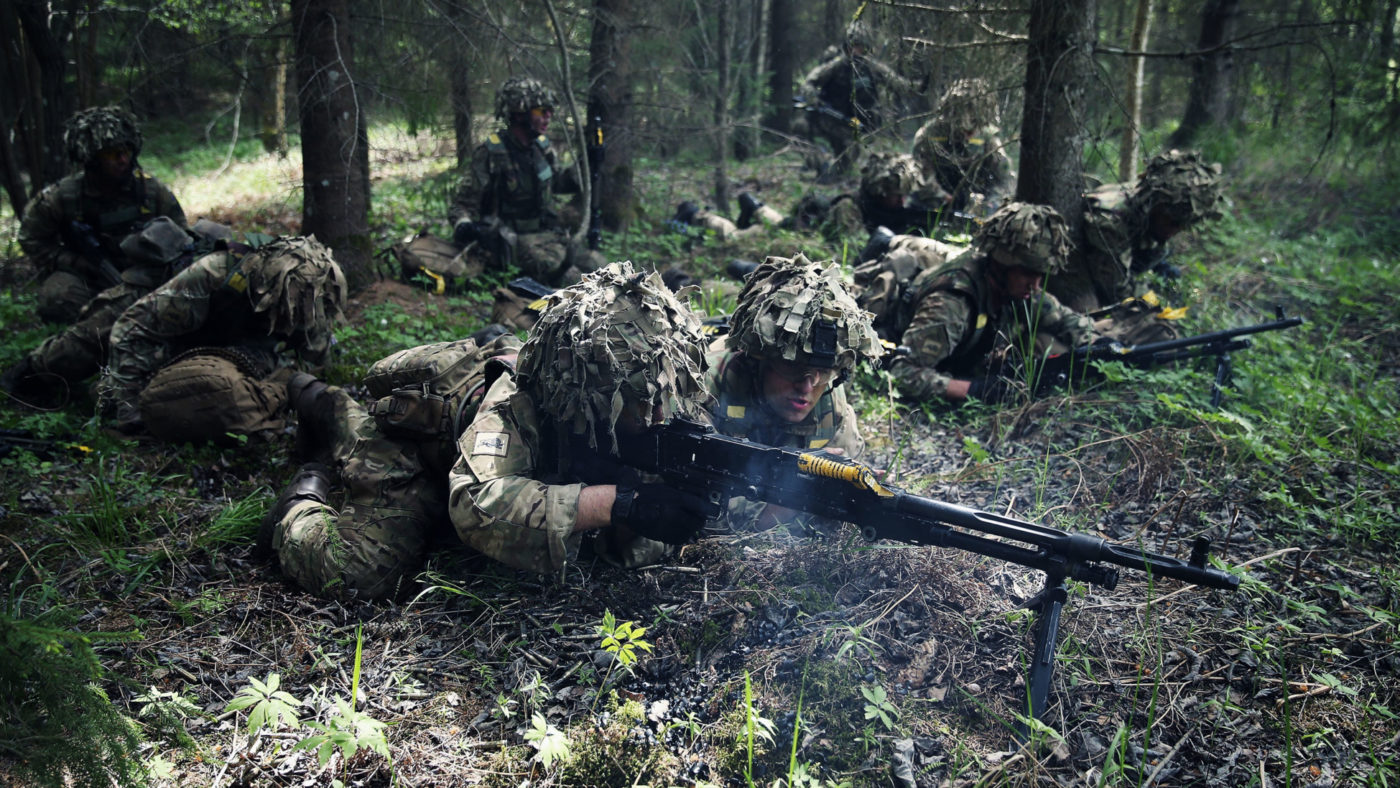Over the past year, Britain’s security and defence policy has been thrust into the limelight. On the one hand, the British government is keen to show its European allies that – irrespective of withdrawal from the EU – the UK will remain deeply committed to European security, with the Prime Minister expected to underscore this fact at the Munich Security Conference tomorrow.
On the other hand, it has become increasingly apparent that the money allocated to the maintenance and development of the British Armed Forces is wholly inadequate for the tasks now confronting them.
Indeed, the rising threat from revanchist countries like Russia to Nato and the wider European order has become increasingly acute. As General Nicholas Carter, the Chief of the General Staff, said in an important speech last month that he thought this was the British military’s “most immediate concern”. He added: “We now live in a much more competitive, multi-polar world and the complex nature of the global system has created the conditions in which states are able to compete in new ways short of what we would have defined as ‘war’ in the past.”
The Russians have a term for this: “non-linear warfare”. The idea is simple: insofar as nuclear weapons have made great power war unthinkable, and as Russia lacks the resources or vision to confront the West symmetrically, ways must be found to degrade the democratic West using a combination of cheaper instruments that also evade the logic of escalation.
Western analysts often call this “hybrid warfare”. But this term is wrong. All wars have been, to varying degrees, hybrid: very few, if any, have involved only military capabilities. Most conflicts draw together a range of means. Even the Falklands War, a very “limited” conflict, with clear-sighted objectives, drew together a combination of military, economic, political, diplomatic and cultural instruments – from the dispatch of the Royal Navy to the struggle to shape global public opinion in the context of the Cold War.
In other words, the Western understanding places emphasis on the instruments, rather than the political objective. The Russian term is more accurate, however, because it places emphasis not on the means, but on the ends. In non-linear war, the aim is not to defeat the enemy in the traditional way, namely through an epic battle or final victory, but instead to continuously grind the opponent down by sowing chaos and confusion. To no small extent, non-linear warfare assumes a perpetual state of struggle and confrontation, ideas that have become deeply unfashionable since the end of the Cold War, not least since liberalism has come to be seen as the “natural” state of affairs.
However, liberalism is not natural, nor its spread inevitable. Since the end of the Second World War, if not before, the UK and US have institutionalised this “rules-based”, “liberal” or “free and open” international order. This has resulted in a kind of hegemonic geopolitical framework that draws together liberalism, constitutional democracy, maritime economic globalisation and a plethora of international institutions, all ultimately undergirded by the dissuasive and deterrent effect of British and American military power.
In the immediate post-Cold War period, after the Soviet collapse, this framework had no competitors: although a number of disruptive authoritarian regimes – those in Serbia, Iraq, Iran and North Korea – tried to revise it locally, they nevertheless lacked the power to overthrow it, even regionally.
Since the 2007-2008 Financial Crisis, however, which hit the UK and US particularly hard, denting their confidence and relative power, the liberal order has come under continual attack. Russia and, increasingly, China, have been the leading protagonists. What they appear to be doing is trying to dislocate the liberal hegemony, or at least adapt it regionally in keeping with their own preferences. This is, ultimately, what non-linear warfare is about; the tools used are of secondary importance. And this has critical implications for the West, the liberal order, and its principal custodians, the UK and US.
However, non-linear warfare is not uniform, and takes at least two forms. The first, “anti-hegemonic” warfare, is being practiced by Russia in Eastern Europe, particularly against smaller, vulnerable countries like Georgia, Moldova and Ukraine. The objective is to weaken Western influence in each of them by dislocating their structures of government, ultimately preventing them from gaining admission to the Euro-Atlantic structures, particularly NATO.
Meanwhile, the second form of non-linear struggle, “counter-hegemonic” warfare, is being undertaken by China, with its island-building activities in the South China Sea, and infrastructure programmes in Eurasia. Unlike an anti-hegemonic offensive, “counter-hegemonic” warfare aims not merely to confuse an existing order, but to replace it with an alternative system underpinned, in this case, by Beijing. Consequently, it is not unlike the attempts made by Germany or the Soviet Union draw their neighbours into their own geopolitical frameworks.
So, given that the UK and its allies are now confronted by these new forms of non-linear competition, the Prime Minister needs to explain in Munich how London is going to step up. This is the perfect opportunity for Mrs. May to provide real strategic vision for the West and emphasise her country’s role as a determined custodian of the prevailing liberal order, particularly in upholding European security.
She should state clearly that we are now entering a volatile new age of geopolitical struggle, which will require not additional political structures, let alone rival European projects, but instead a steely determination to uphold Nato as the centrepiece of European defence. And she should make the case for a significant boost to British military spending, while also reminding her European allies, in stark terms, of the commitments they made at the Nato Summit in 2014 to bolster their own.


